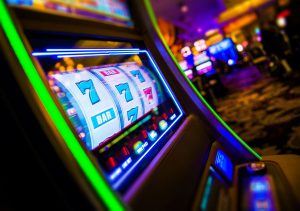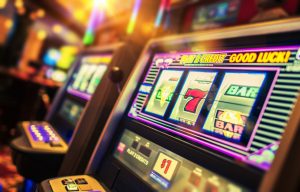
Indiana’s gambling regulatory leader steps down
Executive Director Greg Small plans to step down Sept. 20 after three years in charge of the Indiana Gaming Commission.

Executive Director Greg Small plans to step down Sept. 20 after three years in charge of the Indiana Gaming Commission.

According to a person with knowledge of the situation, members of the team had set up a makeshift, internal sportsbook where athletes could wager on the times posted by themselves or teammates at meets.

The “Big Four” veteran organizations are forming the PlayIN for Charity alliance, which will advocate for enabling legislation in 2025.

Four other players were suspended for one year by Major League Baseball on Tuesday in the game’s biggest gambling scandal in decades.
Sportsbooks say they expect increased betting on women’s sports overall this year because of Clark, the Olympics and increased media attention.

A Fever championship would have bookmakers sweating. They are the biggest liability at BetMGM Sportsbook, with nearly half the betting tickets on the Fever, who open the season Tuesday at the Connecticut Sun.

Jontay Porter of the Toronto Raptors is the second person to be banned from the league by Commissioner Adam Silver for violating league rules.

Kentucky-based developer Churchill Downs Inc.’s Terre Haute Casino Resort will officially open to the public at 10:30 a.m. Friday after two years of development and a changing of ownership.

The American Gaming Association estimates $2.7 billion will be bet this year on the NCAA men’s and women’s basketball tournaments through legal sportsbooks.

Statehouse Republicans this month finalized legislation increasing lawmaker oversight over the Indiana Gaming Commission’s extra-budgetary requests.

Players, leagues and fans have been reckoning with the still-unfolding effects of sports gambling since a Supreme Court ruling handed the question of legalization to states in 2018. Each constituency may be arriving at the realization those impacts have mushroomed beyond anyone’s control.

A feud between the General Assembly and the Indiana Gaming Commission escalated late Friday when lawmakers approved language blocking the commission from getting more money without their approval.

The Hoosier Lottery has leased two floors of the building at 1302 N. Meridian St. since 2011.

Indiana saw gambling revenue slip last year, but the state remains among the top 10 gambling markets.

The volume of betting participation is projected to be 35% higher than last year, which was the previous record, according to the American Gaming Association.

The updated report found that Indiana could bring in between $413 million and $929 million over the first three years of legalization in “average” conditions at different possible tax rates.

The Terre Haute Casino Resort will feature a 400,000-square-foot casino building with 56,000 square feet of gaming space that includes 1,000 slots and 50 table games, as well as a 125-room hotel.

The gambling industry and its advocates have for several years wanted to legalize i-gaming, but that timeline may now be years longer than previously expected.

Under the plea agreement, Sean Eberhart will pay restitution of $60,000, although it’s unclear if he’ll serve time in prison.

While some MGM Resorts computer systems were still down, Caesars told federal regulators on Thursday that its casino and online operations were not disrupted.